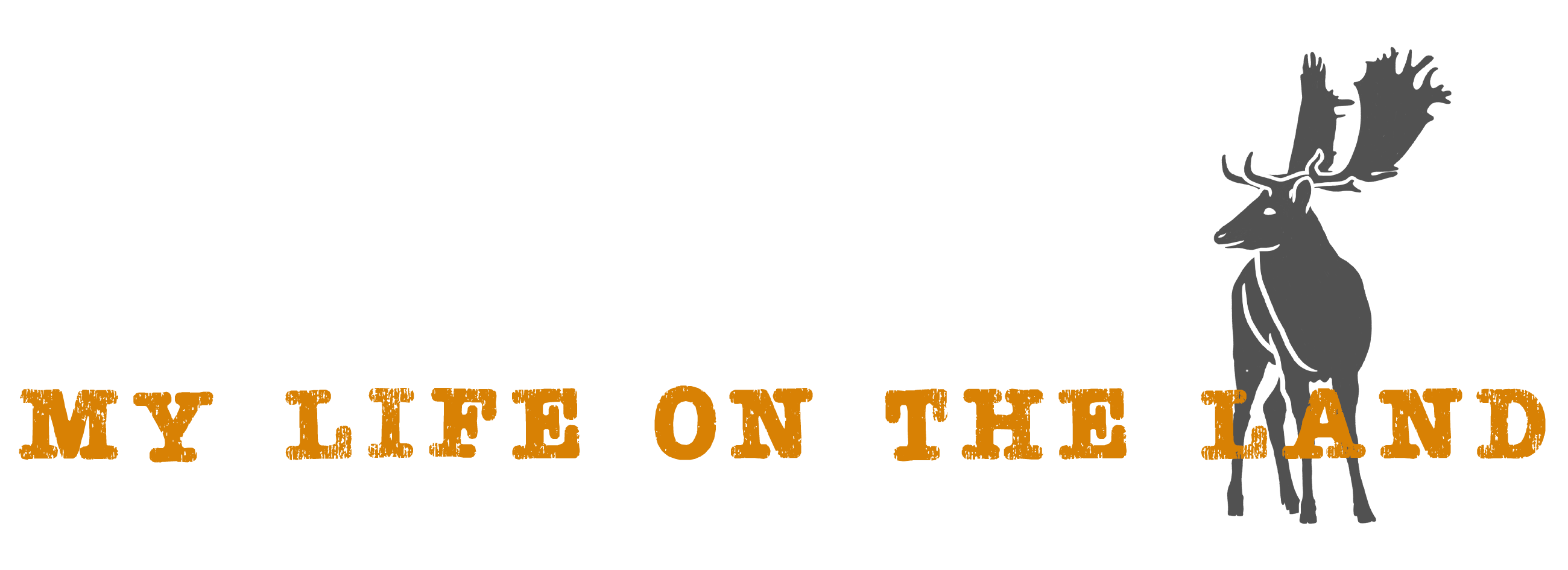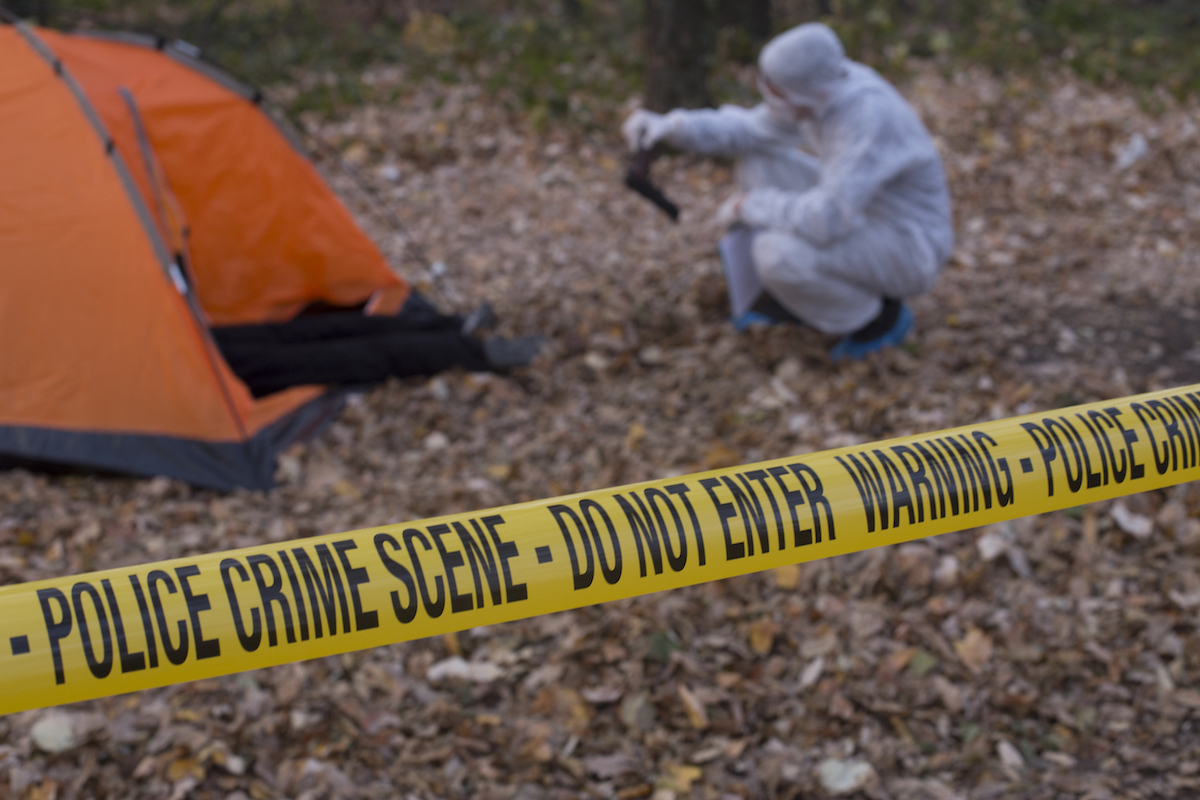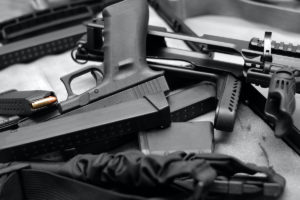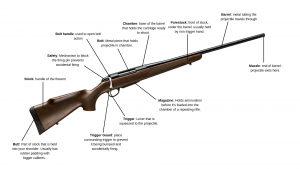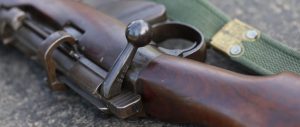When compared to other sports, hunting is remarkably safe, given the fact we use high-powered rifles as equipment. Unfortunately, there are still accidents that occur every year.
Thankfully, fatalities are still few and far between and account for only a tiny percentage of all hunting accidents. Still, even one avoidable death is too many.
In this article, we’ll look at some of the most common hunting accidents and how they can be avoided using some simple common sense.
Accidental shootings
Each year, there are cases where people are shot while hunting, or by hunters.
So what are some of the most common causes of accidental shootings?
Would you believe that, most often, the injury is self-inflicted – as in the hunter has tripped, fallen, or dropped their rifle and somehow ended up shooting themselves?
Occasionally, the accident results in someone in close vicinity to the hunter, such as a hunting buddy or family member, being accidentally shot.
In all of these cases, the accident could have been completely avoided by securing the rifle while travelling.
Too many hunters walk through the bush with a loaded rifle, thinking they’ll just keep their finger off the trigger until they need to shoot, or they’ll rely on their rifle’s safety mechanism. Their reasoning – they want to be able to take a quick shot if they come across a deer or animal.
In our opinion, this is an accident waiting to happen (and obviously the statistics show it often does happen).
If you trip and fall, or somehow drop a loaded rifle, there’s a high chance it’s going to fire and you have no way of controlling where that bullet is going to go. And while a safety release has been designed to stop this happening, it’s a simple mechanical feature that can and has been known to fail.
The safest thing is to not load your rifle until you are ready to take the shot.
In the Beretta Safety Tip in episode 1 of I Am Hunter, we share a technique we use to make rifles safe while walking around the bush. Remove the magazine and ensure there is no bullet in the chamber. Hold the trigger in, lock the bolt down, and then replace the magazine. This disengages the firing pin. The gun is now firmly locked and cannot be fired until you unlock the bolt and load a bullet into the chamber.
The other major cause of accidental shootings is improper identification of targets. This is where the hunter shoots at a target but has either misidentified the target, missed and hit a nearby human, or fired in an unsafe manner and caused a ricochet that has then gone on to hit a human.
Again, this is really easy to avoid by ensuring that you properly identify your target every single time, and that you always check the foreground and background so that you know what else is in the area.
As we pointed out in How to be an ethical hunter, don’t shoot at shadows. A set of antlers moving through the trees could very well be a freshly hunted deer attached to a hunter’s back!
ALWAYS take the time to make sure of your target. If you’re not 100% sure, don’t shoot. Once you are sure of your target, take a little extra time (it doesn’t take long, I promise) to check you have a clear path – that there’s nothing behind your target (eg. people, houses, other animals) and that you’re not shooting over a horizon. No game animal is worth accidentally killing another human being.
And while a ricochet can’t be completely avoided (sometimes, these things just happen despite you taking the utmost care), you can reduce the chances by ensuring you don’t shoot near metal surfaces, or directly into water.
Ignoring safety rules
This one is almost an annexe of the previous issue, and generally involves accidents that occur not so much because of a trip or a fall, but due to careless firearms handling.
This might be pointing a firearm at or in the general direction of another person – whether deliberately or just by not taking the proper care. It doesn’t matter whether a rifle is loaded or not, NEVER point a firearm at or towards another human. Treat that firing end of the rifle with the utmost respect.
Another accident just waiting to happen is climbing a fence or crossing an obstacle while holding a firearm. There’s a reason that all the safety rule books have clear instructions about this, and that’s because it greatly increases your chances of tripping and falling (and we already saw in point one that a fall can result in your rifle going off).
The correct procedure is to place the firearm down first, or get someone else to hold it while you cross the obstacle. Once you are safely across THEN pick your rifle back up.
If you’re a little rusty on your firearms safety principles, check out 8 Basic Principles of Firearms Safety.

Lack of Preparation
Some accidents could be avoided with some simple preparation and practice.
We’ve said it before and we’ll say it again (and again, and again) – practice makes perfect.
Far too many hunters skip the range and head straight out hunting, thinking they can fire off a few shots and hit an animal.
If you’re not completely familiar with your rifle and how it performs, and regularly hitting the target at the range, chances are you’re going to miss what you’re aiming at, or worse, have an accident.
If you’re lucky, the accident will be something minor, like catching a finger in a mechanism you’re not familiar with, or being unprepared for the recoil. But it could just as easily be something serious, like a misfire or a stray bullet because you didn’t take the time.
If your gun is new, spend several hours down at the range getting comfortable before taking it out.
If you’ve upgraded to a more powerful calibre, take the time to get comfortable with the extra kick.
If you’ve recently bought a new scope, spend the time down at the range making sure it’s completely sighted in.
If you’ve only ever shot from a bench at the range but will likely be shooting prone or off-hand, make sure you’re comfortable with the different shooting positions.
If you’re going to be shooting longer distances than you’ve ever shot before…
Yep, you guessed it – practice those distances until you’re fully comfortable.
And how do you get comfortable? Practice, practice and more practice.
Mechanical Failures
Accidents due to mechanical failure (or user error resulting in mechanical failure) can be particularly nasty.
Ever seen the after effects of an obstructed barrel, or an explosion caused by using the wrong ammunition?
Believe me, it’s not a pretty sight.
To avoid this, ALWAYS check before you fire.
Check that you have brought the proper ammunition for your rifle, and don’t just rely on visual identification. Different calibre bullets can look very similar on first glance. They might look the same, and even fit in the rifle in the same way. For instance, a 20 gauge shotgun shell can fit into a 12 gauge shotgun, and will slip past the chamber. This then allows for a 12 gauge shell to be fed into the chamber.
But the results of firing the wrong ammunition can be catastrophic! Not only will it cause serious damage to your rifle, it can also cause you or others in the near vicinity serious injury!
Check that there’s no obstruction to the barrel, caused by a jammed shell, built up grit or even dirt or residue. If you do see something obstructing the barrel, make sure the rifle is safe and unloaded, remove the obstruction and maybe give the barrel a quick clean with a pull through. We usually keep one in our hunting backpack just in case.
And on that note, make sure you clean your rifle regularly. A clean rifle is much less likely to result in mechanical failure.
How often you clean your rifle will depend on how much you use it, the type of rifle it is, and what type ammunition it uses but as a good rule of thumb, you should clean your rifle at least once every couple of months – more so if you use it regularly.
What other hunting accidents have you seen that could be simply avoided?
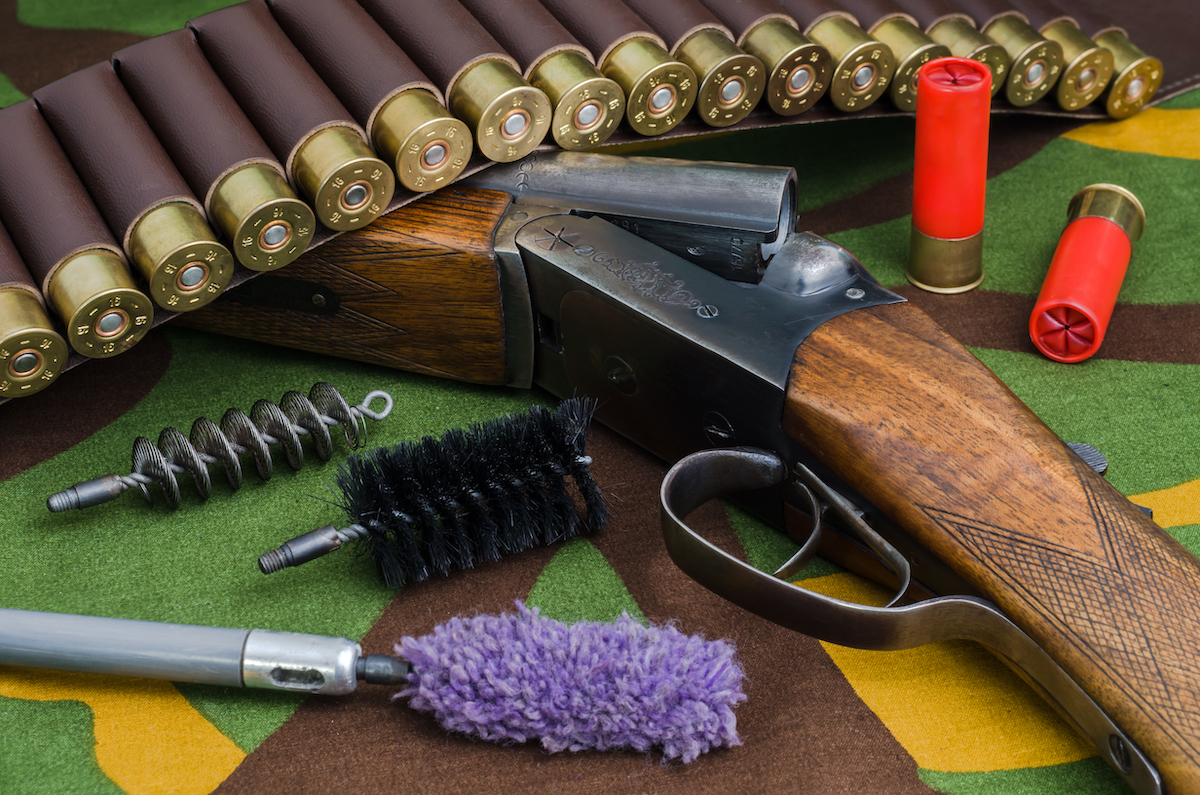
What is I Am Hunter?
I Am Hunter has a lofty goal to change the way hunting is perceived in the community. Hunters can find a wide range of tools and resources to help them improve their skills and become positive role models and advocates for the hunting community.
I Am Hunter is a member-supported website. By paying a small monthly or annual fee, members help keep most of the content free, which in turn helps to spread a positive message about hunting with the wider community.
In return, members enjoy exclusive rewards and benefits including member-only content, discount codes, and giveaways.
Related content
Our other channels
Follow us on Facebook
Follow us on Instagram
YouTube
Subscribe to our YouTube channel.
Get our newsletter
Get our free monthly newsletter direct to your inbox
Listen on iTunes
Listen to our podcast on iTunes.
TV series
Watch I Am Hunter episodes on My Outdoor TV (MOTV)
